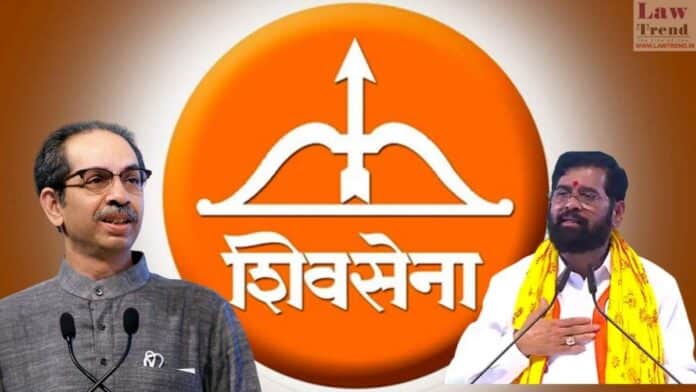Calling for a trust vote merely on the ground of differences between MLAs of a ruling party can topple an elected government, the Supreme Court observed on Wednesday, adding the governor of a state cannot lend his office to effectuate a particular result.
“It will be a sad spectacle for democracy,” a five-judge constitution bench headed by Chief Justice D Y Chandrachud said while taking forward the hearing on the events that unfolded during the June 2022 Maharashtra political crisis triggered by a revolt in the then undivided Shiv Sena by MLAs loyal to Eknath Shinde.
The bench made the observations after Solicitor General Tushar Mehta, appearing for the Maharashtra governor, narrated the sequence of events and said there were various materials before the governor including a letter signed by 34 Shiv Sena MLAs, a letter from Independent lawmakers withdrawing support to the Uddhav Thackeray government, and another of the Leader of the Opposition that prompted him to order a trust vote.
B S Koshyari, who was then the governor of Maharashtra, had asked Thackeray to face a floor test to prove his majority. Thackeray, however, resigned in the face of imminent defeat, paving the way for appointment of Shinde as the new chief minister.
“Difference of opinion among MLAs within a party can be on any ground like payment of development fund or deviation from party ethos but can that be a sufficient ground for the governor to call for the floor test? Governor cannot lend his office to effectuate a particular result. Calling for a trust vote will lead to toppling of elected government,” the bench said.
The bench, also comprising Justices MR Shah, Krishna Murari, Hima Kohli and PS Narasimha said a letter by the leader of opposition does not matter in the instant case because he will always keep on writing that the government has lost majority or MLAs are not happy. The letter from MLAs that there was a threat to their security is also not relevant in this case, it said.
“The only thing is that a resolution of 34 MLAs which said that there was widespread discontent among the party cadres and legislators….Is this sufficient ground to call for trust vote? Although, in the hindsight we can say that Uddhav Thackeray had lost the mathematical equation.
“But the fact is governor cannot enter this domain which would precipitate the matter. People will start ditching the ruling party and governor will end up toppling the ruling party. This will be a sad spectacle for democracy,” the court observed.
The bench also said the governor should have questioned the (Shiv Sena) MLAs that they were in a “happy marriage” with the Congress and the NCP for three years and then suddenly what happened in a day that they wanted to go out of the alliance.
“Three years you cohabited in an alliance, and one fine day, you decided for divorce. The rebel MLAs became ministers in another dispensation. Governor has to ask these questions to himself. What were you fellows doing for such a long time and now suddenly you want a divorce,” the court said.
On March 2, the Shinde faction had told the top court that the pleas related to the June 2022 Maharashtra political crisis fell within the realm of politics and judiciary cannot be asked to adjudicate the issue.
A political crisis had erupted in Maharashtra after an open revolt in the Shiv Sena by the Shinde faction.
On June 29, 2022, at the height of the crisis, the apex court had refused to stay the Maharashtra governor’s direction to the 31-month-old MVA government led by Thackeray to take a floor test.
Sensing defeat, Thackeray had resigned, catapulting to power a Shiv Sena-BJP dispensation led by Shinde.
On August 23, 2022, a three-judge bench of the top court headed by then chief justice N V Ramana had formulated several questions of law and referred to the five-judge bench petitions filed by the two Sena factions which raised several constitutional questions related to defection, merger and disqualification.
In a blow to the Thackeray bloc, the Election Commission declared the Shinde faction as the real Shiv Sena on February 17 and allotted to it the bow and arrow election symbol of the party founded by Balasaheb Thackeray.




